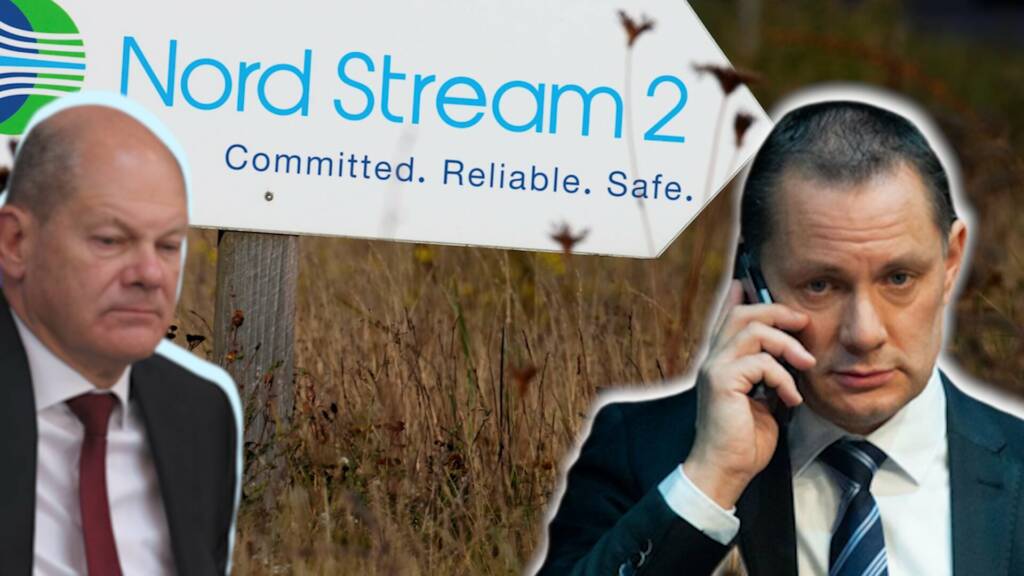Germany Nord Stream 2 project: The emergence of Germany’s AfD party has sparked a noticeable shift in public sentiment, with a growing affinity for Russia. As Olaf Scholz experiences a decline in popularity, the rise of the right-wing AfD becomes increasingly apparent, hinting at their potential return to power. For a nation burdened by Scholz’s anti-Russia policies, this development brings a sense of relief. The AfD’s pledge to reset Germany’s relations with Russia and revive energy trade comes as a ray of hope.
Germany needs Nord Stream 2
AfD party’s MP Steffen Kotre, a member of the German parliamentary committee on energy and climate protection, has emphasized the critical need for Germany to revive its energy ties with Russia. He contends that abandoning Russian energy supplies in favor of alternatives has proven detrimental to both businesses and consumers. Kotre’s concerns primarily stem from the surge in gas prices, which has contributed to the deindustrialization of Germany, jeopardizing its competitiveness in the global market.
“The surge in gas prices leads to the deindustrialization of Germany. To ensure competitiveness, Germany should agree to purchase gas through the surviving branch of the Nord Stream 2 pipeline,” Kotre stated.
Currently, Germany has lost direct access to Russian gas due to the shutdown of both Nord Stream pipelines last year, an incident widely believed to be sabotage. While one branch of Nord Stream 2 survived, bureaucratic delays have hindered its certification process, leaving Germany reliant on more expensive alternate gas sources, primarily liquefied natural gas from the US.
Read More: Spain and Czechia Shocks the World as Russian Energy Returns in Record Volumes
He highlights the economic and environmental advantages of Russian gas, emphasizing its cost-effectiveness and eco-friendly nature in comparison to the pricier and less environmentally sustainable US supplies obtained through fracking. Kotre’s stance underscores the urgency for Germany to reassess its energy policies, emphasizing the practical benefits of renewing its energy relationship with Russia through the Nord Stream 2 pipeline.
The Russian Energy Affair Still Continues
Despite the appearance of reduced reliance, Europe, particularly Germany, quietly continues to depend on Russian LNG gas. Uniper, a major German energy company, openly admitted this reality.
Russia’s stronghold on the LNG market remains robust, acknowledged by Uniper’s CEO, Michael Lewis. He highlighted that while Uniper had temporarily halted Russian gas purchases due to Ukraine-related sanctions, Russia’s supply still reaches global markets, inadvertently reaching wholesalers.
Germany, with gas storage at 95% capacity, faces potential challenges in the upcoming winter, especially if there are LNG procurement issues. Lewis warns of possible strain due to increased demand from China, impacting Europe’s LNG supply and causing price hikes. Despite the EU’s aim to reduce reliance on Russian fossil fuels by 2027, current trends indicate a paradox: the EU is set to import record quantities of liquefied natural gas from Russia this year.
AfD party set to take power in Germany
As the 2025 federal elections approach, Chancellor Olaf Scholz finds himself navigating a rapidly changing political landscape. The once prevalent anti-Russia sentiment in Germany has been overshadowed by economic and energy concerns, leading to a surprising shift in public opinion.
Read More: If Scholz actually bans the AfD, Germany will implode
The emergence of the Alternative for Germany (AfD) party has been a significant game-changer. AfD’s pro-Russia stance has resonated with the public, positioning itself as a promising alternative for Germany’s future. Investigations revealing close ties between AfD members and Russian politicians, coupled with opposition to EU sanctions against Russia, have bolstered the party’s image.
Recent reports of AfD politicians planning visits to the occupied Donbas region and allegations of financial support from Russia underscore the party’s growing influence. This pro-Russia sentiment provides a glimmer of hope for many Germans disillusioned with Scholz’s anti-Russia policies.
Watch More:
